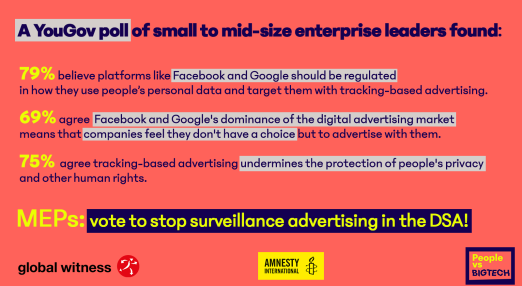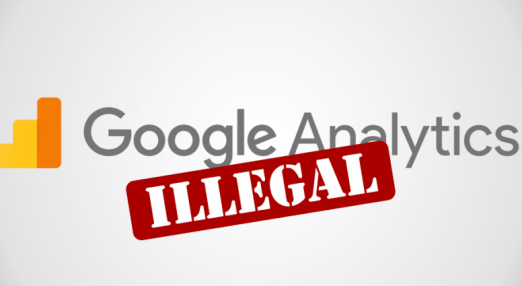Secret negotiations about Europol: the big rule of law scandal
In negotiations held behind closed doors, the Council of Member States and the European Parliament are about to torpedo all the efforts of the European data protection watchdog’s to hold Europol accountable for its illegal data practices.
Filter resources
-

Secret negotiations about Europol: the big rule of law scandal
In negotiations held behind closed doors, the Council of Member States and the European Parliament are about to torpedo all the efforts of the European data protection watchdog’s to hold Europol accountable for its illegal data practices.
Read more
-

What went down at #PrivacyCamp22?
EDRi’s annual flagship event Privacy Camp took place yesterday, on 25 January, for the first time online. We hope many of you were able to attend and that you found the event just as inspirational as the in-person experience.
Read more
-

European Parliament approves rights-respecting DSA & proposes ban on use of sensitive personal data for online ads
Today's upcoming vote by the European Parliament's (EP) on the Digital Services Act (DSA) is expected to be a good step forward in protecting people’s rights on the internet, including freedom of expression and information, right to safety and the right to privacy, which EDRi has strongly and consistently advocated for.
Read more
-

EDRi-gram, 19 January 2022
In this first edition of the EDRi-gram for 2022, we look at how people are pushing MEPs to take the opportunity to end surveillance ads. We also explore why it is important for our health data to stay private and how the e-Evidence Regulation threatens the confidentiality of this sensitive information. We also look into what it’s like to have an algorithm as your boss through the stories of millions of people worldwide, working in the gig economy for companies like Uber, Deliveroo, Bolt & Just Eat, who are subjected to unprecedented surveillance.
Read more
-

People ask MEPs: Take the opportunity, end surveillance ads!
Thousands of people are asking the EU Parliament to end online surveillance advertising , ahead of the DSA (Digital Services Act) vote in the plenary on Thursday, 20 January 2022. EDRi is part of the movement mobilising people, together with individual organisations in the PeopleVsBigTech group and beyond.
Read more
-

Short Film “Reclaim Your Face”: the harms of Biometric Mass Surveillance to society
‘Biometric Mass Surveillance pose a danger to society’ is the main message of Alexander Lehmann's latest short film. And there is no better place to premier this movie than at the last Chaos Computer Club's end of the year event rC3. The film "Reclaim Your Face" highlights the issues surrounding biometric mass surveillance and underlines the harms that its’ systems pose to our society.
Read more
-

Hide and Seek: Polish DPA agrees that people should be able to access their advertising profiles, but there’s no way to do so
Following EDRi member Panoptykon’s General Data Protection Regulation (GDPR) complaint against one of the biggest Polish news website, Interia.pl - the Polish Data Protection Authority has confirmed that online publishers should give users access to their advertising profiles generated for the purposes of delivering behavioural ads.
Read more
-

The EU’s own ‘Snowden Scandal’: Europol’s Data Mining
On 3 January 2022, the European Data Protection Supervisor (EDPS), which supervises the processing of personal data by the EU’s law enforcement agency, Europol, ordered Europol to delete data held in its databases on individuals with no established link to criminal activity.
Read more
-

Cross-border access to user data by law enforcement in 2021: A year in review
Law enforcement agencies around the world are getting their holiday wish list, thanks to the Council of Europe’s adoption of a flawed new protocol to the Budapest Convention, a treaty governing procedures for accessing digital evidence across borders in criminal investigations.
Read more
-

Don’t let Big Tech fool you: Small businesses don’t want surveillance advertising
Tracking-based advertising has become all pervasive in the digital world. Amnesty Tech's new research shows that small businesses know very well how harmful these practices are to human rights but have little alternative.
Read more
-

Austrian DSB: EU-US data transfers to Google Analytics illegal
In a groundbreaking decision, the Austrian Data Protection Authority ("Datenschutzbehörde" or "DSB") has decided on a model case by noyb that the continuous use of Google Analytics violates the GDPR.
Read more
-

Online surveillance thrives when fear takes over
European law-enforcement agencies have been pushing to end encryption and survey everyone’s online communications.
Read more
